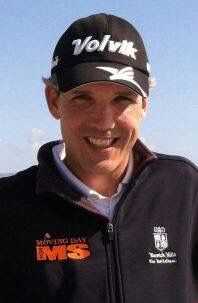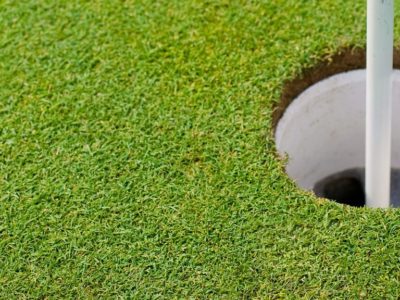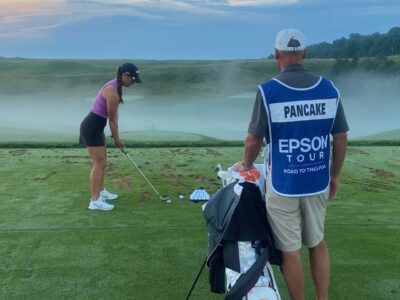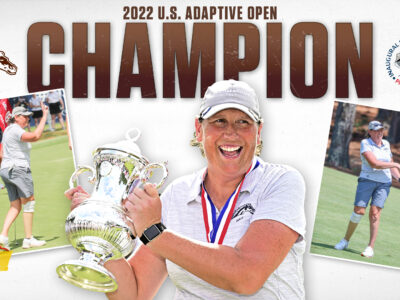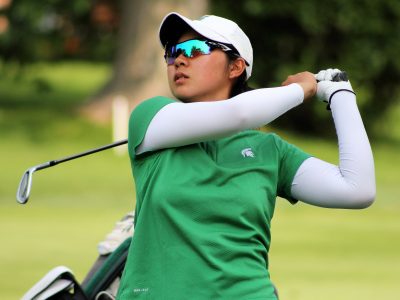By Keith Dunlap
Seemingly invincible, having been a veteran of the United States Air Force and a member of the Asian Golf Tour back in the late 1990s and early 2000s, Jimmy Dee Dowsett’s world and life ambitions changed roughly 17 years ago.
Dowsett, from Clarkston, came home to the United States from Thailand after finding out his sister was diagnosed with breast cancer, but then suddenly another health scare came his way.
“Three days after I had gotten off of the plane from Thailand, I couldn’t see out of my right eye,” he said. “I went into an eye doctor, who diagnosed me with MS.”
MS is short for Multiple Sclerosis, a disease that disables the central nervous system, which the brain and spinal cord are located in. 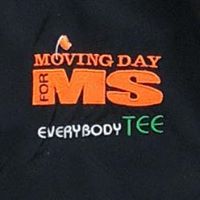
From that point on, Dowsett’s mission became less about his golf career and more about the golf career of others battling the same disease as him.
Dowsett formed “Moving Day for MS,” an initiative where golfers at Tours around the world who have connections wear orange on “Moving Day,” either Saturday or Sunday, to promote MS.
Orange is the official color of MS awareness.
Dowsett said one player who recently wore orange on a moving day was Barry Henson, an Asian Tour player who wore orange during a Saturday at the Indonesian Open.
“Many of my friends still play golf on tours all around the world,” said Dowsett, who qualified for the Asian Tour in the late 90s while serving for the Air Force in Japan. “Women and men. I thought ‘How can I get them involved to help me get awareness out there for MS.’”
Dowsett also has his fingerprints all over an adaptive golf tournament that will take place from Aug. 20-24 at The Fortress in Frankenmuth (see details on page 39).
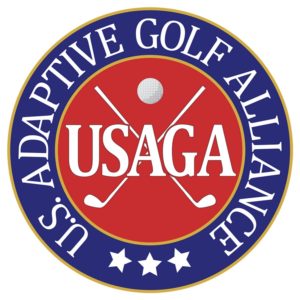 The five-day event (see more info on pages 29 and 39) hosted by the U.S. Adaptive Golf Alliance will feature the National Amputee Golf Championships, the Senior National Amputee Open and the USA International Para-Golf Championship all on the same course.
The five-day event (see more info on pages 29 and 39) hosted by the U.S. Adaptive Golf Alliance will feature the National Amputee Golf Championships, the Senior National Amputee Open and the USA International Para-Golf Championship all on the same course.
The event will also have a feature that Dowsett invented and the USAGA endorsed. In an effort to make golf more fun and faster for adaptive participants, Dowsett came up with what he called the “Everybody Tee” for competitors to use.
The Everybody Tee is where everyone tees off from 200 yards away from the hole on par-4s and 250 yards away from the hole on par-5s.
“It takes care a lot of things,” Dowsett said. “This speeds up play. People have more fun and they shoot lower scores. It really does all three things in a big way. It’s so much fun to play golf with the Everybody tee.”
Dowsett said another feature of the tournament will be that each competitor will say before the tournament that their scoring goal is, and the person closest to achieving that goal will win.
“It’s fun to go through that,” Dowsett said.
Going forward, Dowsett also has another initiative he is pushing for.
While golf is now a sport in the Summer Olympics, it hasn’t been instituted as a sport in the Paralympics. Using his connections in Japan, from his days as a professional golfer there, and the fact he speaks fluent Japanese, Dowsett said he and the USAGA are trying to organize a para-golf event for the Paralympics that will be held two years from now in Tokyo.
Just like it has been with all his endeavors since being diagnosed with MS, Dowsett’s mission will be the same in pursuing golf to be a Paralympic sport.
“I want to help others to get back on the golf course,” he said.

